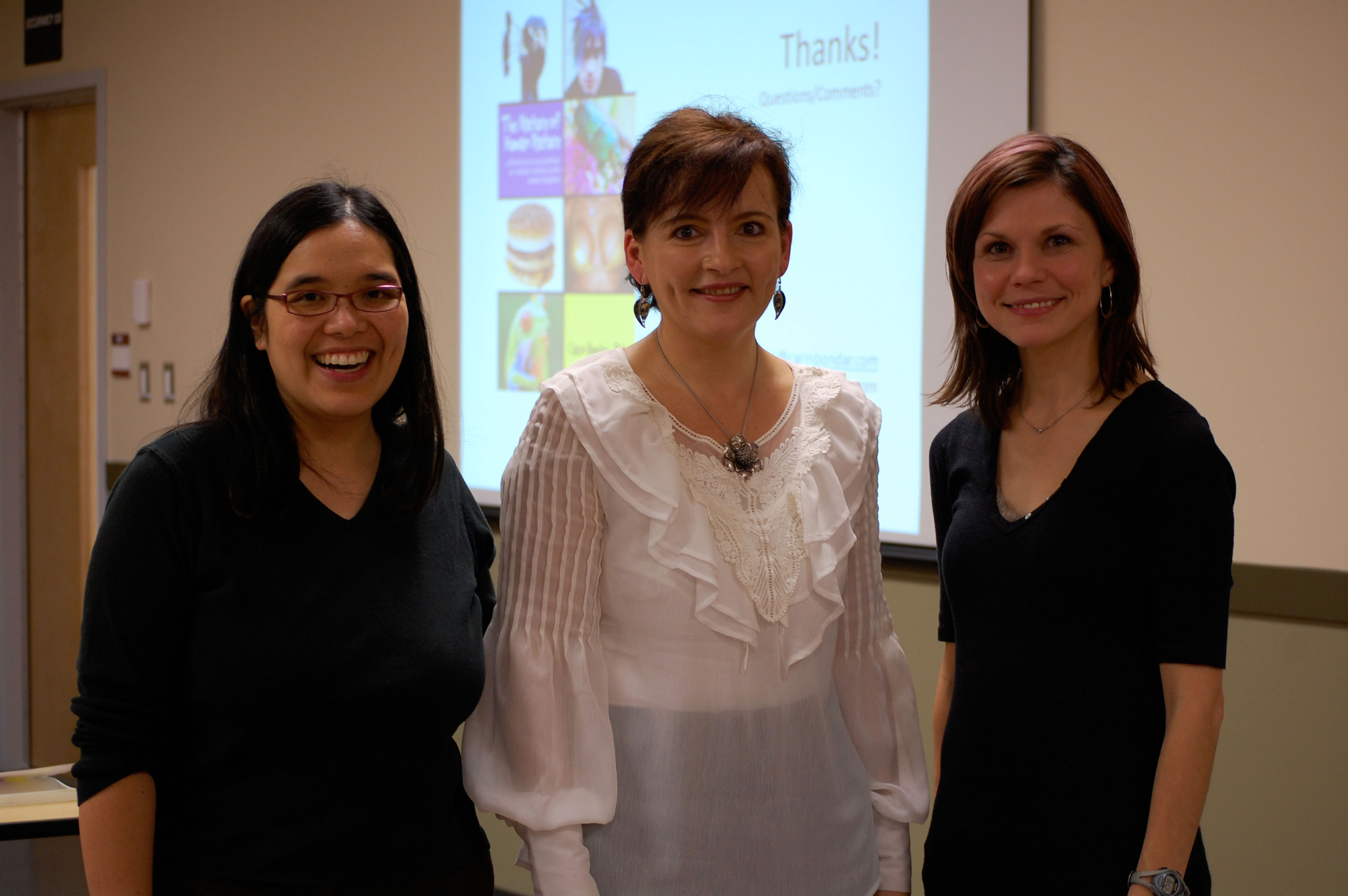by Alex Watkins (News Writer)
Email: cascade.news[at]ufv.ca
How does human nature both reflect and deny our own biology? Do all of our behaviors simply boil down to survival and reproduction? And are the behaviors that we often attribute solely to humans really all that uncommon in the rest of the animal kingdom? These are all questions that were explored at the first inaugural meeting of the newly formed Fraser Valley Women in Engineering, Science, and Technology group (FVWEST), which was held at UFV on Wednesday, November 17.
The FVWEST “is a brand new group created to answer to the specific needs and wants of the women that work, study or live in the Fraser Valley.” The group was formed to provide a forum for “like-minded individuals” to discuss topics that they share interest in and education about, as well as to facilitate connections between and support for these individuals.
Its goals are: to promote science in general by raising awareness about its relevancy in solving many societal problems; to facilitate networking and long-term communication between women working in science/science-related fields in the Fraser Valley; and to promote science and engineering as potential career choices for young women.
The group hopes to attain these goals in part through a mentorship program, which would be open to a limited number of female high-school students. It would pair these students with a mentor from the group who would keep in close contact with them and help them to explore and learn about the field. The program could potentially also include lectures and visits to UFV’s science labs, where students could meet others with similar interests.
The program may also be extended to include female first-year science students, because of the understanding that “This first year is the most critical in derailing the career path of women that initially chose science towards more “appropriate” fields and one of the reasons this happens, as identified by a series of studies, is the lack of mentorship.”
Other potential activities include conferences on various science-related topics to be chosen by the members – such as “the latest achievements in science” – as well as informal social outings, reading groups, and support groups.
The program remains flexible and is hoping to shape itself based on the input of the members themselves, and the meetings and activities are to occur as frequently as the members wish. Although it has been formed out of what they see as a particular need for the promotion of sciences among women, men are welcome to participate as well.
FVWEST was developed because although a similar program – called the Society for Canadian Women in Science and Technology (SCWST) – existed in Vancouver, the founders saw the need for a more central and accessible option for those living in the Fraser Valley. Additionally, the group recognized that a problem with joining a large, established organization is that members often need to respect a set of established objectives and goals; by starting from scratch, the FVWEST is free to determine its own direction.
The first ever presentation held by the group featured Dr. Carin Bondar – a successful biologist, author and film producer – who explored the ways in which human behaviors that we often consider unique to our species actually occur in the animal kingdom as well.
For example, she explained that humans tend to believe that they are the only species that use contraceptives, which seems to violate the basic biological drive to reproduce. However, a 2007 report found that Nigerian Baboons gorge themselves on African black plums when they are in season, far beyond the point of actual nutritional need. It was discovered that the plums contained a large amount of progesterone, which acted as a strong enough contraceptive to prevent pregnancy from occurring during plum season.
As Bondar pointed out, there are other ways in which human behavior does not seem to reflect our biology. For example, humans are the only species who require a “food pyramid” in order to determine how to consume the nutrients that our bodies require; most other organisms are able to do this on an instinctual level.
As evidence, Bondar cited a study in which cockroaches were fed only specific types of food in order to cause severe dietary deficiencies then were exposed to a wide range of foods. The cockroaches began immediately consuming the foods containing the nutrients that they lacked, and within 48 hours, satisfied their deficiencies. She noted that humans are major junk food consumers, even though it negatively affects our survival and reproduction.


